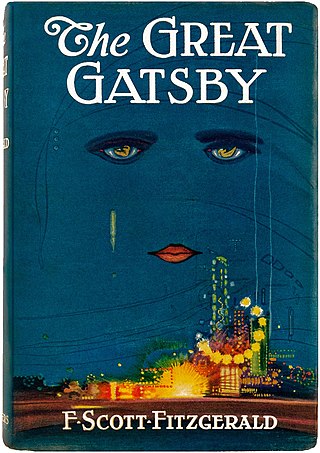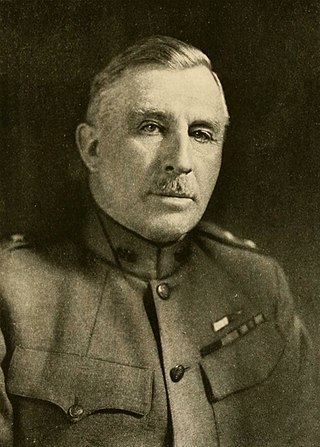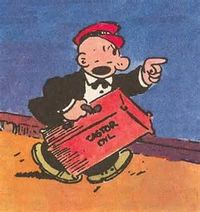Related Research Articles

The Great Gatsby is a 1925 novel by American writer F. Scott Fitzgerald. Set in the Jazz Age on Long Island, near New York City, the novel depicts first-person narrator Nick Carraway's interactions with mysterious millionaire Jay Gatsby and Gatsby's obsession to reunite with his former lover, Daisy Buchanan.

Laurence Harvey was a Lithuanian-born British actor and film director. He was born to Lithuanian Jewish parents and emigrated to South Africa at an early age, before later settling in the United Kingdom after World War II. In a career that spanned a quarter of a century, Harvey appeared in stage, film and television productions primarily in the United Kingdom and the United States.

Salvatore Mineo Jr. was an American actor. He was best known for his role as John "Plato" Crawford in the drama film Rebel Without a Cause (1955), which earned him a nomination for the Academy Award for Best Supporting Actor at age 17, making him the fifth-youngest nominee in the category.

Harold Clayton Lloyd Sr. was an American actor, comedian, and stunt performer who appeared in many silent comedy films.

Leonard Wood was a United States Army major general, physician, and public official. He served as the Chief of Staff of the United States Army, Military Governor of Cuba, and Governor-General of the Philippines. He began his military career as an army doctor on the frontier, where he received the Medal of Honor. During the Spanish–American War, he commanded the Rough Riders, with Theodore Roosevelt as his second-in-command. Wood was bypassed for a major command in World War I, but then became a prominent Republican Party leader and a leading candidate for the 1920 presidential nomination.

King William's War was the North American theater of the Nine Years' War (1688–1697), also known as the War of the Grand Alliance or the War of the League of Augsburg. It was the first of six colonial wars fought between New France and New England along with their respective Native allies before France ceded its remaining mainland territories in North America east of the Mississippi River in 1763.

Clay LaVergne Shaw was an American businessman, military officer, and part-time contact of the Domestic Contact Service (DCS) of the CIA. Shaw is best known for being the only person brought to trial for involvement in the assassination of John F. Kennedy. Shaw was acquitted in 1969 after less than one hour of jury deliberation, but some conspiracy theorists continue to speculate on his possible involvement.

Dennis Waterman was an English actor and singer. He was best known for his tough-guy leading roles in television series including The Sweeney, Minder and New Tricks, singing the theme tunes of the latter two.

William Morgan DeBeck, better known as Billy DeBeck, was an American cartoonist. He is most famous as the creator of the comic strip Barney Google, later retitled Barney Google and Snuffy Smith. The strip was especially popular in the 1920s and 1930s, and featured a number of well-known characters, including the title character, Bunky, Snuffy Smith, and Spark Plug the race horse. Spark Plug was a merchandising phenomenon, and has been called the Snoopy of the 1920s.

Frederick Tyrone Edmond Power Sr. was an English-born American stage and screen actor, known professionally as Tyrone Power. He is now usually referred to as Tyrone Power Sr. to differentiate him from his son, actor Tyrone Power. He was thrice widowed.

Castor Oyl is a fictional character, created in 1920 by cartoonist Elzie Crisler Segar for his comic strip Thimble Theatre, now known as Popeye.

Marvin Elliott Miller was an American actor. Possessing a deep baritone voice, he began his career in radio in St. Louis, Missouri before becoming a Hollywood actor. He is remembered for voicing Robby the Robot in the science fiction film Forbidden Planet (1956), a role he reprised in the lesser-known The Invisible Boy (1957).

Kenneth Brower is an American writer known for his natural environment writings. His published works include articles with the National Geographic Society, The Atlantic Monthly, Smithsonian, Audubon, and several other periodicals.

Jay Gatsby is the titular fictional character of F. Scott Fitzgerald's 1925 novel The Great Gatsby. The character is an enigmatic nouveau riche millionaire who lives in a luxurious mansion on Long Island where he often hosts extravagant parties and who allegedly gained his fortune by illicit bootlegging during prohibition in the United States. Fitzgerald based many details about the fictional character on Max Gerlach, a mysterious neighbor and World War I veteran whom the author met in New York during the raucous Jazz Age. Like Gatsby, Gerlach threw lavish parties, never wore the same shirt twice, used the phrase "old sport", claimed to be educated at Oxford University, and fostered myths about himself, including that he was a relation of the German Kaiser.
The American National Biography (ANB) is a 24-volume biographical encyclopedia set that contains about 17,400 entries and 20 million words, first published in 1999 by Oxford University Press under the auspices of the American Council of Learned Societies.

Harold Hamgravy, better known as Ham Gravy, is an American comics character from the Thimble Theatre series, created in 1919 by E. C. Segar.

The caning of Charles Sumner, or the Brooks–Sumner Affair, occurred on May 22, 1856, in the United States Senate chamber, when Representative Preston Brooks, a pro-slavery Democrat from South Carolina, used a walking cane to attack Senator Charles Sumner, an abolitionist Republican from Massachusetts. The attack was in retaliation for an invective-laden speech given by Sumner two days earlier in which he fiercely criticized slaveholders, including pro-slavery South Carolina Senator Andrew Butler, a relative of Brooks. The beating nearly killed Sumner and contributed significantly to the country's polarization over the issue of slavery. It has been considered symbolic of the "breakdown of reasoned discourse" and willingness to resort to violence that eventually led to the Civil War.
Wade Walton was an American blues musician and local civil rights leader from Mississippi. He was also a renowned barber, who counted many famous musicians amongst his friends, colleagues, and customers.

The following events occurred in April 1954:

James Harvey and Joe Jordan were two African-American men who were lynched on July 1, 1922, in Liberty County, Georgia, United States. They were seized by a mob of about 50 people and hanged while being transported by police from Wayne County to a jail in Savannah. Investigations by the NAACP showed that the police involved were complicit in their abduction by the mob. Twenty-two men were later indicted for the lynching, with four convicted.
References
- ↑ Lee, Daryl (March 14, 2014). The Heist Film: Stealing With Style. Columbia University Press. p. 80. ISBN 978-0-231-85058-2 – via Google Books.
- ↑ America's film legacy: the authoritative guide to the landmark movies in the National Film Registry , p. 485
- ↑ Frank Sinatra: a celebration, 1999, Derek Jewell
- ↑ The Great American Movie Book, 1980
- ↑ The great spy pictures II, James Robert Parish, Michael R. Pitts, Scarecrow Press, 1986. ISBN 978-0-8108-1913-9. p. 23.
- ↑ Screen world, Volume 13, 1962, p. 80.
- ↑ Rivadue, Barry (1990). Alice Faye: a bio-bibliography. Greenwood Press. p. 83. ISBN 0-313-26525-9 – via Google Books.